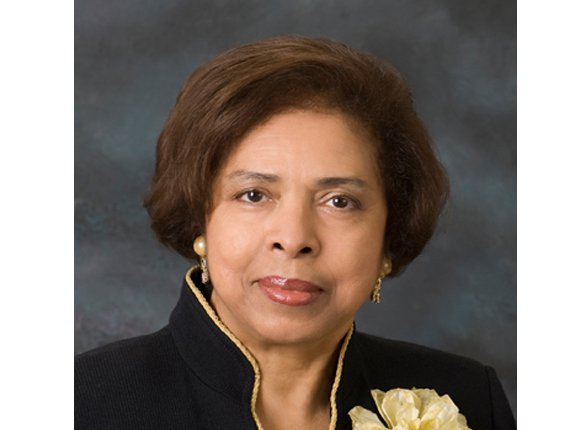High court needs a black woman
4/8/2016, 7:35 a.m.
E. Faye Williams
Scholars often opine that women in decision-making positions of authority would make more positive change in the future of the nation than men. With complete optimism, I believe that a genuine black woman in a decision-making position of authority would bring even more positive outcomes to our future.
In contrast, we haven’t had a genuine black jurist on the U.S. Supreme Court since 1991. When Justice Clarence Thomas was nominated to fill the vacancy created by the resignation of Justice Thurgood Marshall, I allowed myself to believe that a confirmed Justice Thomas would bring a balanced judgment created by surviving an upbringing in the segregated South. That’s among my life’s biggest mistakes!
Since then, as we’ve seen justices added who increase diversity of experience and opinion on the court, we still lack a black female justice. I held hope that the death of Justice Antonin Scalia would present the opportunity for the selection of a black female justice, but I’ve been disappointed by the racist and political motivations shaping the impending selection process. With talk of the critically important role of black women in the 2016 presidential election, I hope the “right” president-elect will wisely consider bringing the sensibilities of a black woman to the high court.
From whoever becomes president, I am unequivocal in my demand for greater respect of the needs and opinions of the community of African-American women. In that regard, I speak for more than a symbolic gesture. Seek the nomination and selection of a black female justice, undertaken without political malice or preference, and complete deliberation made to assure meritorious selection. Future Supreme Court decisions must be made with the guarantee of thoughtful consideration of the interests of black women and those persons and issues circumscribed within the parameters of the black female experience. And, lest someone attempts to minimize or suggest otherwise, the experience of the black female is an integral and consequential part of our national experience. Fairly considered by the president and U.S. Senate alike, the selection of a black woman to the Supreme Court should be a done deal.
If the subsequent vacancy is to be filled by a black woman, black women must lay our cards on the table and demand the selection mandated by our participation in the life and history of the nation. No truer axiom exists than “the squeaky wheel gets the grease.” We cannot wait for “right to prevail” or express our wishes after the fact. The black women with whom I talk understand the importance of the U.S. Supreme Court, know our story is best told by us and realize that no one can make our case as well as we can. The imperative of a black female Supreme Court justice is more than a priority; it is a matter of life and death.
Supreme Court decisions have been pivotal in our history. They have provided for the expansion of civil rights to larger numbers of citizens or have codified and concretized laws that restrict the full realization of the rights of citizenship.
The recent decision that tore the teeth from the federal Voting Rights Act is a clear example. Instead of having voting laws, procedures and actions cleared by the U.S. Department of Justice for potential discriminatory impact, many states have imposed them with impunity. Consequentially, the Supreme Court decision eliminates any relief from negative impact. This has resulted in citizens waiting for hours to vote. Jurisdictions limit or reduce early voting, Sunday voting, easy registration and impose procedures that make voting more difficult rather than easier.
It’s time for women to exercise our power. We must vote and make our demands clear. We cannot stop until we have seated a black female on the Supreme Court.
The writer is president of the National Congress of Black Women.







